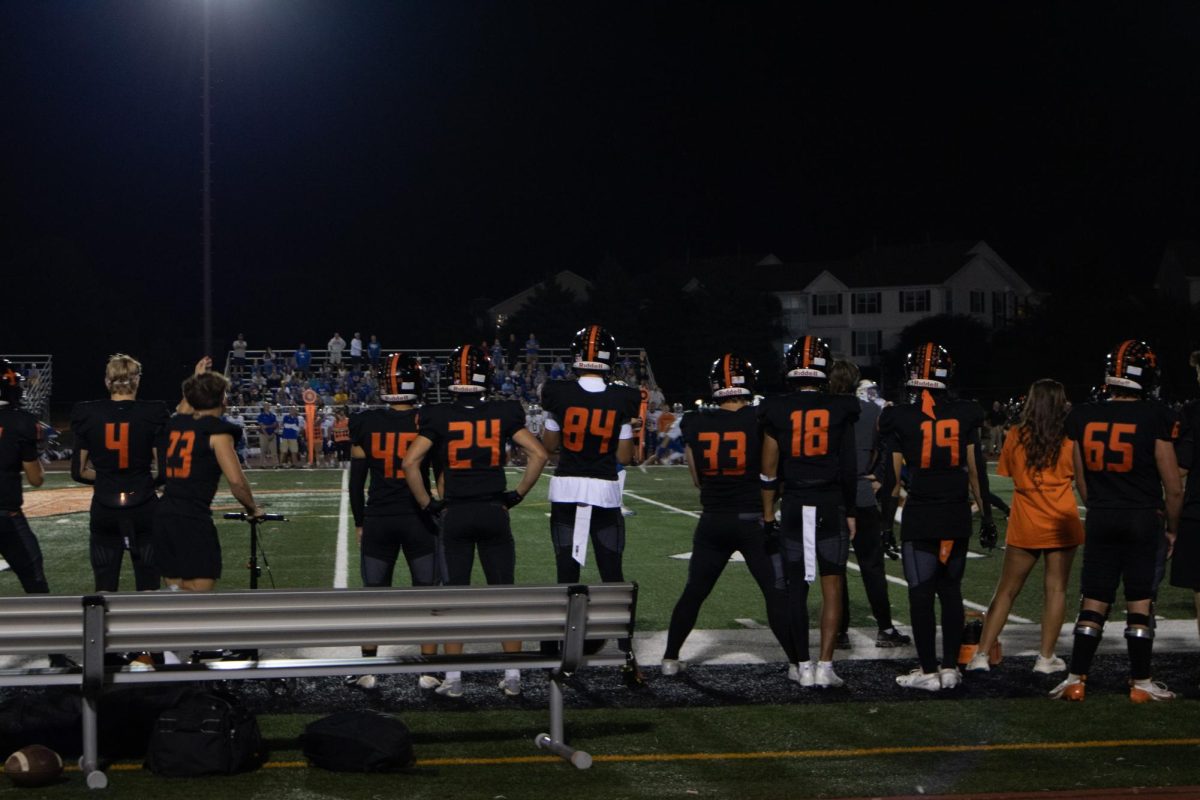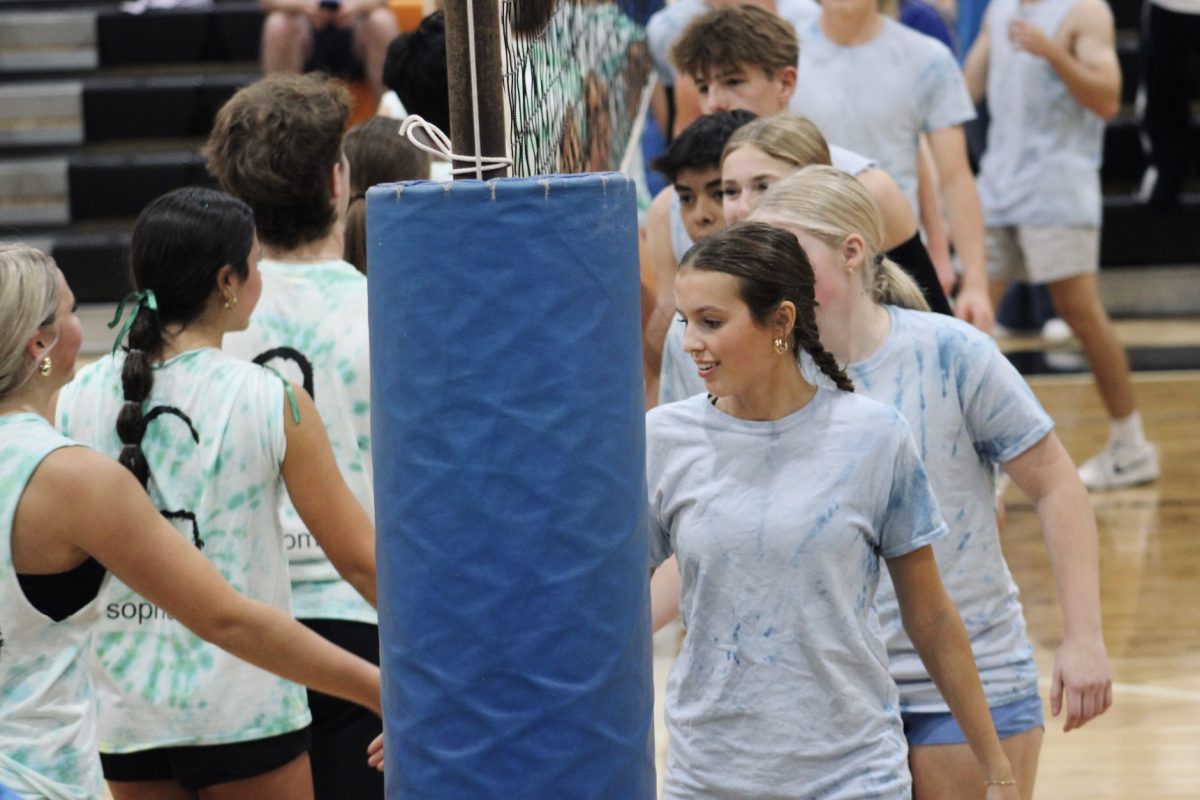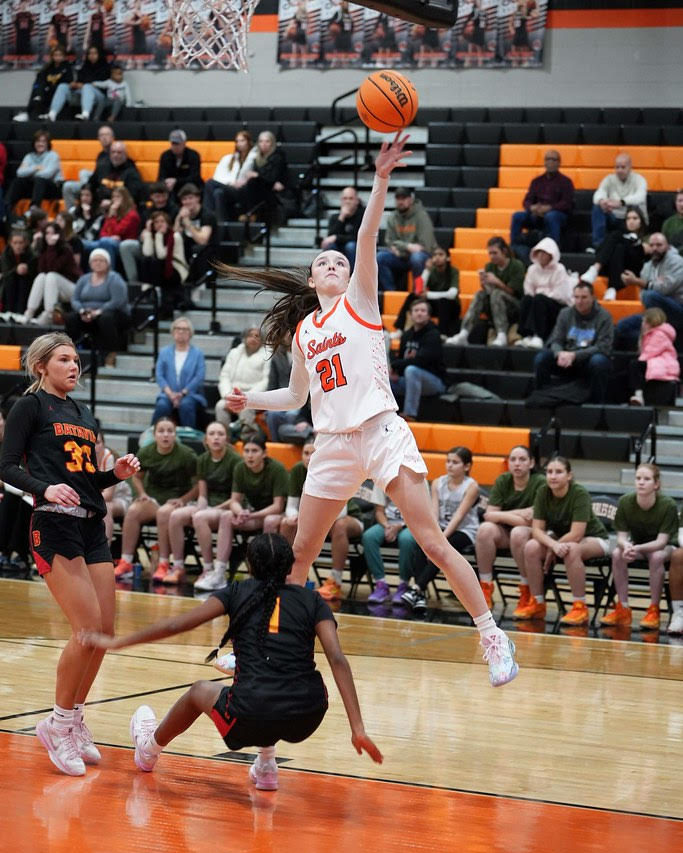At St. Charles East, students are offered a variety of fall, winter and spring sports. To many, school sports are a key component of the high school experience and shape students’ lives. According to Education Week, the title “student-athlete” applies to over 57 percent of high school students nationwide, and playing sports can have a complicated impact on athletes.
Students join school sports teams for many reasons: maybe they have been playing since they were a child, maybe they want to get in better shape or perhaps they want to meet new people to connect with at the school. However, one of the first things that sports have an impact on is physical health.
Playing sports is extremely beneficial for improving physical health and staying in shape. Dedicating yourself to a sport and putting in work and exercise are tried and true methods of becoming and staying fit. Around 73 percent of East students strongly agreed with this in a recent survey sent out to the student body.
In addition to impacting student’s physical health, about 93 percent of surveyed students agreed that being a student-athlete teaches them important life skills. Ella McKenney, a sophomore on the girls’ swim and dive team, said, “I’ve noticed that being a student-athlete [has] helped build skills such as self-discipline and perseverance.” Along with these skills, student-athletes also learn the importance of hard work and goal-setting. Many coaches emphasize the correlation between hard work/discipline in sports and success in life down the road.
“I think one of the key things right now in high school is that athletics is one of the only places that you have to learn to deal with adversity,” said East’s athletic director Darren Howard. “You don’t get second, third, fourth, fifth chances. You either perform or you don’t perform, and you have to be able to be good with that.” By exposing athletes to tough situations and uncomfortable emotions, sports can better prepare them for the real world.
These unique skills and qualities that students gain from playing sports can even be translated into increased academic performance. By learning the importance of discipline and hard work, student-athletes can improve their work ethic in school as well as obtain better grades. Sports can biologically improve academic performance as well. According to the University of Bridgeport, it has been shown that exercise increases blood flow to the brain, creating stronger nerve connections and improving concentration, memory, creativity and problem-solving skills. Therefore, exercising during sports helps students stay focused in the classroom and helps them retain more information.
Participating in a sport also allows students to connect with more people within the school. Similar to joining a club, sports teams provide an intimate setting to find people with similar interests and build lasting bonds. In the survey, a majority of students said that doing a sport has allowed them to meet new people and make friends. When asked if they enjoyed sports, many students said they enjoyed participating in sports because of the friendships they had with their teammates.
Playing sports can also have a huge impact on an athlete’s mental health. According to a study by PLOS ONE, children who play sports show 10 percent lower scores for anxiety and depression. Playing sports can give student-athletes an outlet for the stress in their lives, and the large majority of those at St. Charles East said that sports have a positive effect on their mental health. The benefits of playing team sports include higher confidence, social ability and even self-esteem. Being a part of a team can make students feel like they belong and greatly improve mental health. However, according to Saybrook University, playing individual sports can also have a very different effect. By placing the pressure to perform on only one person, without teammates to pick them up after a bad game, athletes can experience increased mental health issues. Carrying the weight of losing on your own shoulders can be very stressful and too much to handle for some.
While being a student-athlete has many positive sides, many students also expressed some downsides to playing a sport. “It can really cut into your home life,” commented junior Christopher Fitzpatrick. Students said that doing a sport can be stressful and causes them to have less free time. That means less time for socializing, relaxation and academics especially. Dedicated athletes may prioritize their sport over their grades and academics, and become “athlete-students” instead of student-athletes. Athletes may not leave time for homework, jeopardizing their grades for their sport. Due to the limited free time that student-athletes have, time management skills become very important. In addition, many of them sacrifice important aspects of their health, like sleep, in order to finish all their tasks outside of their sport. Junior Joey Kreuger highlighted something that many student-athletes can relate to: “doing school work at one a.m. the night before a game.” Some athletes like Kreuger might find themselves working at their sport so much that they don’t have time to finish school work until late at night, resulting in sleep deprivation.
Burnout is also a possibility for many athletes who feel overworked. Balancing schoolwork, playing sports and sleep can be difficult when their lives are consumed by their sport. Furthermore, a lack of sleep, a common theme among student-athletes, can contribute to a poor mental state and deteriorating mental health. That is why it is important for student-athletes to prioritize their health and make sure that they leave enough time for themselves.
In all, being a student-athlete is by no means easy. It takes lots of hard work, time management and perseverance, but it all pays off in the end. To many, the amazing experiences, skills and people gained from playing sports is a price well worth paying. Senior cross country runner Aidan Miller explained that sports motivate him every day, and how they help him in many aspects of his life outside running. “We always say you can join a club at East, but also remember that if you don’t join a club, you can always join a sport!”, Miller said. Joining a sports team can help fulfill St. Charles East’s goal of bringing a sense of belonging to everyone.










